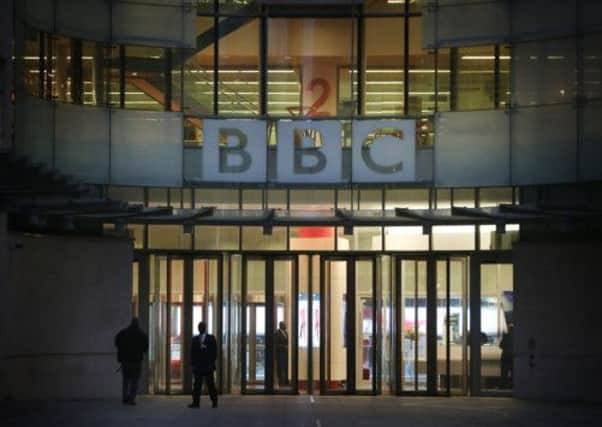Scottish independence: ‘Impartiality will be hard’


• BBC admits that Scottish independence debate will test BBC’s impartiality
• Corporation must relay arguments to UK electorate as well as those in Scotland
Advertisement
Hide AdLord Hall also said that the challenge for journalists was to relay arguments for and against to the UK electorate and not just those in Scotland.
He was speaking during a question and answer session at the Edinburgh International Television Festival after being asked how BBC Scotland would deal with the claims and counter claims being made by the Yes Scotland and Better Together campaigns.
Lord Hall said: “Somebody asked there is it always going to be difficult to be impartial towards the referendum? And I’d say yes.
“It is in almost anything that we do. You’re struggling all the time to be impartial.
“What I care about with the Scottish referendum is not just that we do it really well and lay out the case for, against, and all the nuances, here in Scotland, but that we also do it for the whole of the UK.
“Because although there are no votes outside Scotland this is an issue of profound important for all of the UK.”
Advertisement
Hide AdHe said that investing £5m towards the BBC’s referendum coverage and assigning experienced political commentators such as Jim Naughtie demonstrated that the corporation was committed to high quality coverage of the debate and vote.
He said: “We have put some money into Scotland to make sure we can be as ambitious as we want to be.
Advertisement
Hide Ad“And also Jim Naughtie is coming to broadcast from Scotland to all of the UK on Radio Four and really be ‘Mr Referendum’.
Lord Hall addressed delegates at the Edinburgh International Conference Centre alongside political commentator John Sergeant, BBC Creative Director Alan Yentob, National Union of Journalists General Secretary Michelle Stanistreet, Conor Burns MP, a member of the Culture, Media and Sport Select Committee, and Liz MacKean, the reporter who made the axed Newsnight documentary linked to the Jimmy Savile scandal.
Ms MacKean was heavily critical of the handling of the Savile and told delegates and audience members that Lord Hall had to address the fact that few BBC staff had been punished over the handling of the affair.
She said: “People have been moved around but no one has taken responsibility.”
Lord Hall also fielded questions over the high pay and the existence of an “officer class” within the BBC which was handed salaries and severance pay far in excess of other members of staff.
The BBC paid £25m to 150 high ranking members of staff in the three years to December, with police from the Met called in to ensure there was no corruption involved.
Advertisement
Hide AdHe said: “I understand the resentment and anger that is caused by [high] levels of pay but also what has happened with severance pay.”
Lord Hall said he has now capped paid offs to £150,000 but added: “On the other hand...I also have to make sure that I’ve got people who can deliver and ensure we have a corporation that we’re all really proud of.”
Advertisement
Hide AdLord Hall also said he wanted to recruit young the news journalists of the future but ensure that those given jobs were not given preference because of connections to the BBC.
He said: “We’re going to boost our apprenticeships by 45 in the next year from local radio stations and the nations as well.
“It really should not be the case that your mum and dad know someone that means you can get into this sector which is so exciting and so important.”
He added that among his key aims was to ensure more women are employed as presenter.
Lord Hall added: “As it happens I’m announcing later on that I want local radio breakfast programmes to get the point where at least half have female presenters by the end of 2014.
“This is the first in a series of moves I want to make to demonstrate real commitment to this issues of women being in prominent places, not just back stage as it were but in front of camera or microphone.”
SEE ALSO